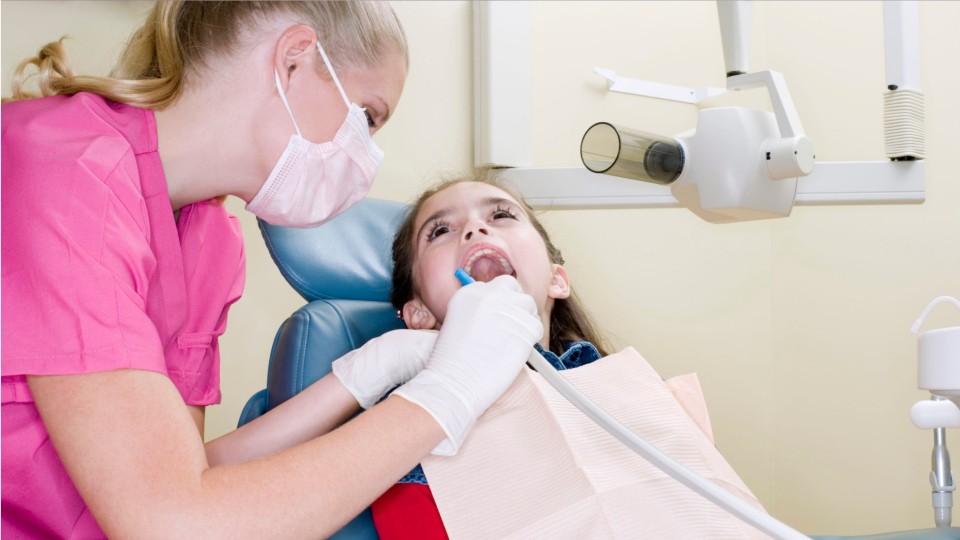Medical Sonographer
Medical Sonographer
Career Overview
Diagnostic medical sonographers specialize in creating images of the body’s organs and tissues. The images are known as sonograms or ultrasounds. Sonograms are often the first imaging tests performed when disease is suspected.
Education
Completing a two-year college program or certificate in diagnostic medical sonography may be required to obtain this position. A four-year bachelor’s degree in this field will make an applicant more competitive.
Future Outlook
Employment of diagnostic medical sonographers is projected to grow 17 percent from 2019 to 2029, much faster than the average for all occupations.
Work Environment
Most diagnostic medical sonographers and cardiovascular technologists and technicians, including vascular technologists, work full time. Most diagnostic imaging workers are employed in hospitals, while most of the rest worked in physicians’ offices or medical and diagnostic laboratories.
Recommended High School Courses
- Communication
- Science - as much as possible, including biology and psychology!
- Active Learning - Understanding the implications of new information for both current and future problem-solving and decision-making.
- Active Listening - Giving full attention to what other people are saying, taking time to understand the points being made, asking questions as appropriate, and not interrupting at inappropriate times.
- Complex Problem Solving - Identifying complex problems and reviewing related information to develop and evaluate options and implement solutions.
- Coordination - Adjusting actions in relation to others' actions.
- Critical Thinking - Using logic and reasoning to identify the strengths and weaknesses of alternative solutions, conclusions or approaches to problems.
- Instructing - Teaching others how to do something.
- Judgment and Decision Making - Considering the relative costs and benefits of potential actions to choose the most appropriate one.
- Learning Strategies - Selecting and using training/instructional methods and procedures appropriate for the situation when learning or teaching new things.
- Monitoring - Monitoring/Assessing performance of yourself, other individuals, or organizations to make improvements or take corrective action.
- Operation and Control - Controlling operations of equipment or systems.
- Operation Monitoring - Watching gauges, dials, or other indicators to make sure a machine is working properly.
- Persuasion - Persuading others to change their minds or behavior.
- Reading Comprehension - Understanding written sentences and paragraphs in work related documents.
- Science - Using scientific rules and methods to solve problems.
- Service Orientation - Actively looking for ways to help people.
- Social Perceptiveness - Being aware of others' reactions and understanding why they react as they do.
- Speaking - Talking to others to convey information effectively.
- Time Management - Managing one's own time and the time of others.
- Writing - Communicating effectively in writing as appropriate for the needs of the audience.
- Clerical - Knowledge of administrative and clerical procedures and systems such as word processing, managing files and records, stenography and transcription, designing forms, and other office procedures and terminology.
- Computers and Electronics - Knowledge of circuit boards, processors, chips, electronic equipment, and computer hardware and software, including applications and programming.
- Customer and Personal Service - Knowledge of principles and processes for providing customer and personal services. This includes customer needs assessment, meeting quality standards for services, and evaluation of customer satisfaction.
- Education and Training - Knowledge of principles and methods for curriculum and training design, teaching and instruction for individuals and groups, and the measurement of training effects.
- English Language - Knowledge of the structure and content of the English language including the meaning and spelling of words, rules of composition, and grammar.
- Medicine and Dentistry - Knowledge of the information and techniques needed to diagnose and treat human injuries, diseases, and deformities. This includes symptoms, treatment alternatives, drug properties and interactions, and preventive health-care measures.
- Physics - Knowledge and prediction of physical principles, laws, their interrelationships, and applications to understanding fluid, material, and atmospheric dynamics, and mechanical, electrical, atomic and sub- atomic structures and processes.
- Psychology - Knowledge of human behavior and performance; individual differences in ability, personality, and interests; learning and motivation; psychological research methods; and the assessment and treatment of behavioral and affective disorders.
- Arm-Hand Steadiness - The ability to keep your hand and arm steady while moving your arm or while holding your arm and hand in one position.
- Category Flexibility - The ability to generate or use different sets of rules for combining or grouping things in different ways.
- Control Precision - The ability to quickly and repeatedly adjust the controls of a machine or a vehicle to exact positions.
- Deductive Reasoning - The ability to apply general rules to specific problems to produce answers that make sense.
- Finger Dexterity - The ability to make precisely coordinated movements of the fingers of one or both hands to grasp, manipulate, or assemble very small objects.
- Flexibility of Closure - The ability to identify or detect a known pattern (a figure, object, word, or sound) that is hidden in other distracting material.
- Fluency of Ideas - The ability to come up with a number of ideas about a topic (the number of ideas is important, not their quality, correctness, or creativity).
- Inductive Reasoning - The ability to combine pieces of information to form general rules or conclusions (includes finding a relationship among seemingly unrelated events).
- Information Ordering - The ability to arrange things or actions in a certain order or pattern according to a specific rule or set of rules (e.g., patterns of numbers, letters, words, pictures, mathematical operations).
- Manual Dexterity - The ability to quickly move your hand, your hand together with your arm, or your two hands to grasp, manipulate, or assemble objects.
- Multilimb Coordination - The ability to coordinate two or more limbs (for example, two arms, two legs, or one leg and one arm) while sitting, standing, or lying down. It does not involve performing the activities while the whole body is in motion.
- Near Vision - The ability to see details at close range (within a few feet of the observer).
- Oral Comprehension - The ability to listen to and understand information and ideas presented through spoken words and sentences.
- Oral Expression - The ability to communicate information and ideas in speaking so others will understand.
- Originality - The ability to come up with unusual or clever ideas about a given topic or situation, or to develop creative ways to solve a problem.
- Perceptual Speed - The ability to quickly and accurately compare similarities and differences among sets of letters, numbers, objects, pictures, or patterns. The things to be compared may be presented at the same time or one after the other. This ability also includes comparing a presented object with a remembered object.
- Problem Sensitivity - The ability to tell when something is wrong or is likely to go wrong. It does not involve solving the problem, only recognizing there is a problem.
- Selective Attention - The ability to concentrate on a task over a period of time without being distracted.
- Speech Clarity - The ability to speak clearly so others can understand you.
- Speech Recognition - The ability to identify and understand the speech of another person.
- Speed of Closure - The ability to quickly make sense of, combine, and organize information into meaningful patterns.
- Visualization - The ability to imagine how something will look after it is moved around or when its parts are moved or rearranged.
- Written Comprehension - The ability to read and understand information and ideas presented in writing.
- Written Expression - The ability to communicate information and ideas in writing so others will understand.
- Adjust settings or positions of medical equipment.
- Monitor video displays of medical equipment to ensure proper functioning.
- Operate diagnostic imaging equipment.
- Create advanced digital images of patients using computer imaging systems.
- Position patients for treatment or examination.
- Communicate test or assessment results to medical professionals.
- Monitor patient conditions during treatments, procedures, or activities.
- Explain medical procedures or test results to patients or family members.
- Prepare patients physically for medical procedures.
- Record patient medical histories.
- Analyze test data or images to inform diagnosis or treatment.
- Gather medical information from patient histories.
- Prepare official health documents or records.
- Process x-rays or other medical images.
- Assist healthcare practitioners during surgery.
- Collaborate with healthcare professionals to plan or provide treatment.
- Clean medical equipment or facilities.
- Examine medical instruments or equipment to ensure proper operation.
- Repair medical facility equipment.
- Maintain medical facility records.
- Perform clerical work in medical settings.
- Schedule patient procedures or appointments.
- Supervise patient care personnel.
- Train medical providers.
- Implement advanced life support techniques.
- Maintain inventory of medical supplies or equipment.
- Order medical supplies or equipment.
- Prepare medical supplies or equipment for use.
- Treat medical emergencies.
Approx Salary Expectation
References
Trend Analysis - Explorer the Market, Labour Market Information, Government of Canada https://www.jobbank.gc.ca/trend-analysis.
O*NET OnLine, National Center for O*NET Development, https://www.onetonline.org/.

